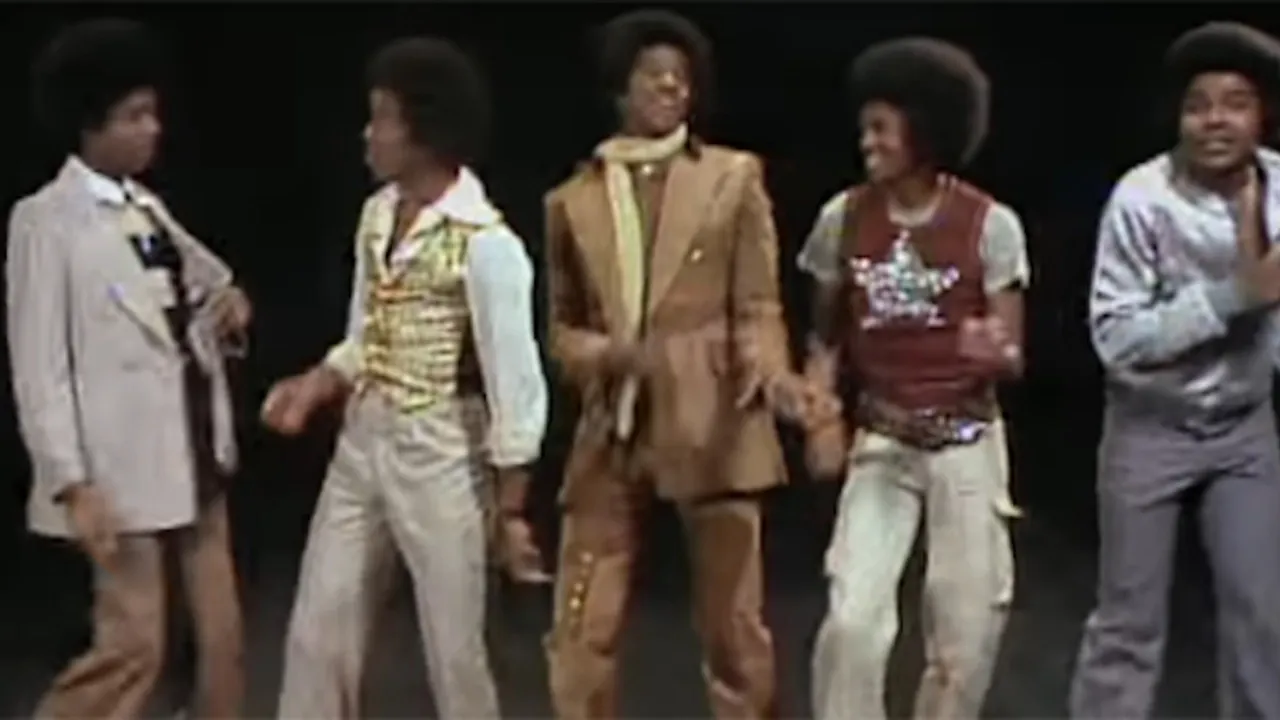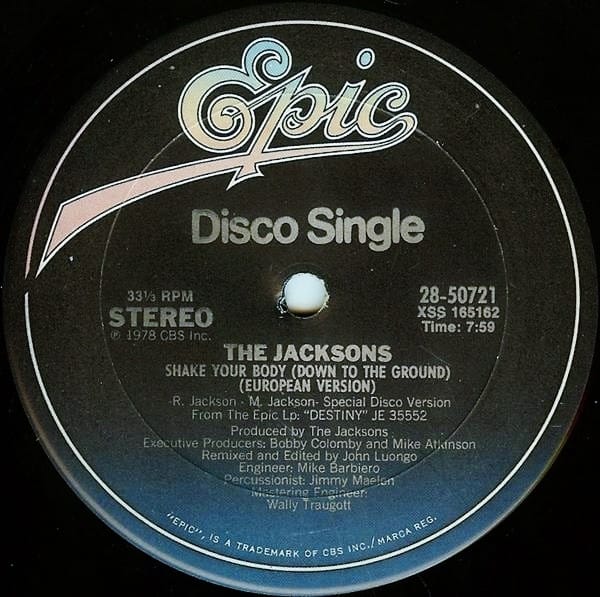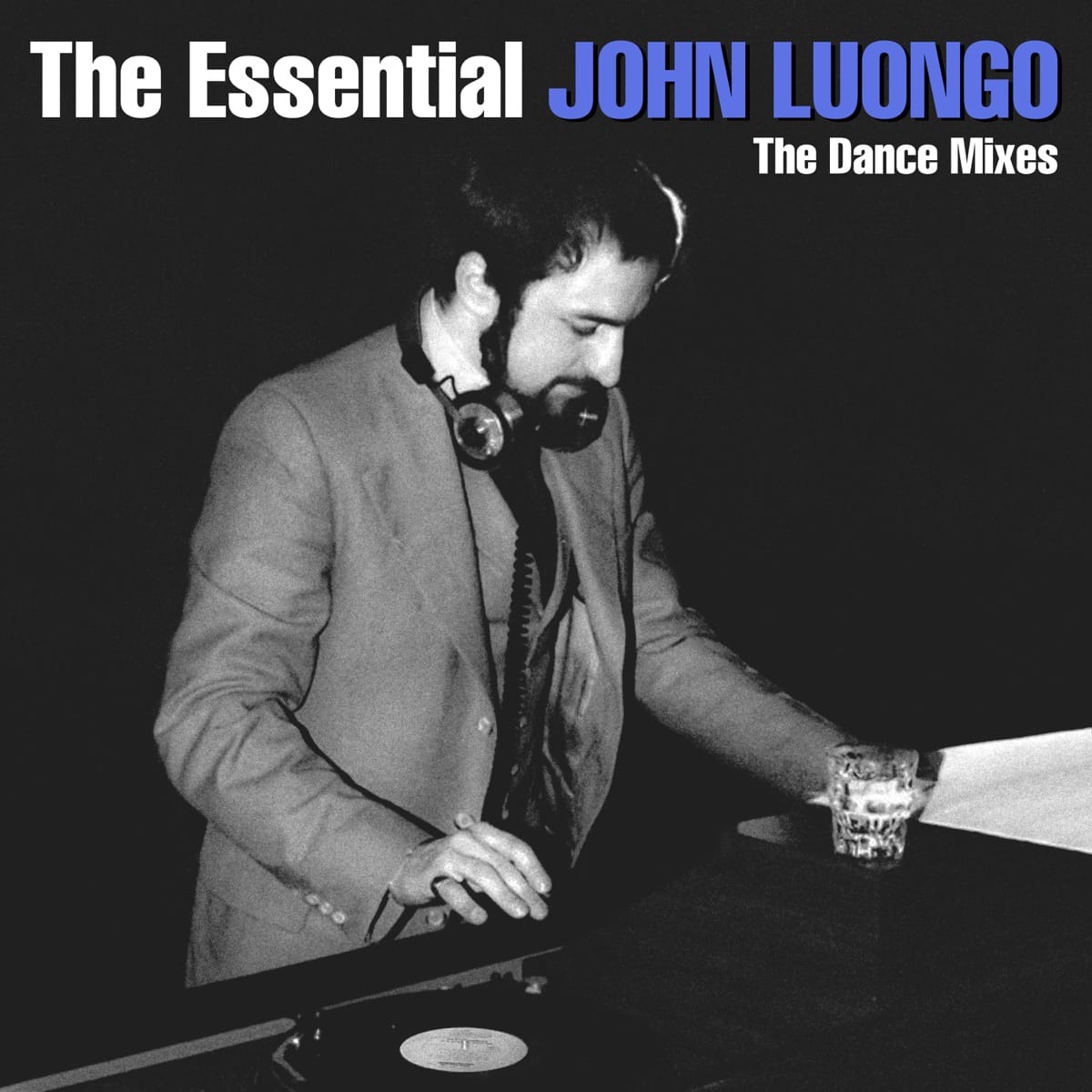Interview Extra: How John Luongo Remixed The Jacksons
An extra anecdote from my 2022 interview with dance remixer/producer John Luongo.

In October 2023 I interviewed John Luongo, one of my favorite remixers, to promote a pair of collections of his work that came out in the fall: Arthur Baker Presents Dance Masters: John Luongo, a 4CD box set of his mixes released by Demon Music Group in the U.K., and The Essential John Luongo: The Dance Mixes, a totally different digital compilation put together by Legacy Recordings, the catalogue arm of Sony Music. (Full disclosure: I consulted for Legacy from 2012 to 2014, worked there full-time from 2014 to 2020, and remain a freelancer for their publicity department since late 2022.)
The chat was everything I wanted it to be and more. John is a music business lifer with tremendous stories and a real passion for the work that decades haven't taken away. Part way through our chat, which lasted more than an hour and a half, John told an incredible story about his early remixing work on two 12" singles by The Jacksons. I knew right away that it could be its own story - and would probably have to be: for reasons beyond my comprehension, someone in the family blocked these crucial mixes' inclusion on either collection. But it made perfect sense to include it as an exclusive on this latest writing project! I hope you enjoy - this is all John from here on out.

I went back to Epic. They said, “We have this song, it's falling off the charts, and we wanna see if you can help us, because we have to make a big decision here. And the decision is, are we gonna re-sign The Jacksons or not?” They had songs they released after “Enjoy Yourself,” they came out and didn't do so good. Then they had “Blame It on the Boogie.” That was about No. 65 on the R&B charts. They were really disappointed. I went into the studio with Crusher Bennett, ‘cause Jimmy Maelen, my usual percussionist, wasn’t around.
Once again, I changed the whole damn thing around. If you’re gonna assign who was probably the first “mixer,” you would have to say Tom Moulton. He was a guy I watched - he’d take part one and part two and extend them. He was very subtle in what he did. But he’d use all the elements that were there. I was a guy who, from the very beginning, invented “additional production.” I would not do a recording unless I could add what I felt it needed in order to give me the tools to make it better than it was. So when you see “additional production” on any recording, it's because that was mine and that was what I came up with.
I added tons of stuff, re-cut the arrangement. I really, really worked my ass off. Now it’s up to No. 15 on the R&B charts. Epic said, “Can you do it again?” They gave me another song on the album. I say I can do it, but I gotta change a lot of things. I went into the studio again: we added keyboards, some great percussion. We added a Syndrum. I can’t tell you Syndrums weren’t used on recordings up until then, but I know that it wasn’t used the way I did, which is [imitates Syndrum sound in “Shake Your Body (Down to the Ground)”]. Jimmy had two. He hit two Syndrums: one tuned up and one tuned down.
Then he said, “I know what I can do to help you.” In my quest for the ultimate sound: we got a stand and he hung a brake drum from an automobile on it. And he used the rears of a mallet, not the actual mallet heads, but the sticks. And he's hitting these Mylar mallets against the brake drum. And he's coming up with this pattern. I said, “Gimme a guiro!” I liked the guiro because it made that very Brazilian sound.
It took us 28 hours. It was hard as hell. Back then, what you would do is you record, you'd stop, you'd make the next session, you'd stop and you'd have to edit it together. You couldn't just adjust faders. And the way I split 'em, I said, “Michael [Barbiero, Luongo's engineer], you got everything from the middle of the console to the right. I’ll take anything from the middle of the console to the left.” And then I'd give him a nod and he would mute things up. We knew we were gonna mute or change or things we would alter. And together we were great. He and I were incredibly connected. I am grateful for having him because he was an incredibly talented, wonderful, perceptive guy. We were like one person.
We didn't realize we had gone so far at the tape, 'cause we kept putting new tape on. Now we look down and we're about one inch over the end of the reel. So if you can imagine a reel, it's 12 inches. Our tape is now actually like 13 inches over there. So we had to try to wind it off. And we knew that if we did wind it off and we missed it in some way, it would've stretched the tape and ruined all the work we did. And we'd never be able to recreate that part again, because you're already way past it.
So Michael said, “Look, I'm gonna hit rewind. When I tell you, you hit play and stop at the same time.” If I hit stop, it would've snapped. But when you hit play and stop, it releases the clutch a little bit, so it kind of slows down. He said, and then when it slows down enough, I'm gonna throw my hands on the reel and stop it. So it went one, two, BAM - and he put his hands on there when we got to the right point. He was a bloody little guy!
We sent it over to Epic, and they called me up the next day and they said “No. The Jacksons hate it.” I can honestly say with every bit of sincerity in my heart: it did not bother me, because my job was not to be safe. My job wasn't to give you a shade of what you already had. My job was to be a risk taker - a daredevil - and do things that I thought would work. And I did more strange things in that record than I had done in most other ones. Every break was unique. Taking Michael's voice and moving it around. Nobody did that stuff back then.
I think, “Well, that's gone. We'll go to the next thing.” And I got a phone about two or three weeks later, from Frankie Rand, an A&R guy at Epic. He says, “We're gonna sue you!” I said, “Oh! Hello to you, too. Why?” He said, “Because we heard that this record has somehow gotten out.” Here's the story: CBS was supposed to send it to Los Angeles to be either archived or destroyed. They somehow send it to Canada, where my friend Dominic Zarfka sees it up there, who's working with Epic. He says, “Oh! John Luongo!” He takes the record, he sends it to his friend who's part of the CBS team in the U.K. Now, this is all happening so quickly that, on the first pressing, my name on the record's listed as "Jim Luongo." I do not have another brother, just so you know; I am not stealing Jim's credit, I am Jim!

So now it gets from the U.K. back into the United States. And Joe “Butterball” Tomburro from WDAS in Philadelphia - he gets a copy and he puts it on the air. And that's it. The phone system lights up. Retailers are calling him, fans are calling him. “Where can I get this record?” CBS finds out, and that's when they call me up to sue me. Long story short, it also gets picked up by Impact, a tip sheet. They say, “This is the greatest remix of a record that has ever been, and it will go No. 1.” Which it did, in every format. After that, I went back to CBS and the product manager, Cheryl Machat - who gave me my break as a remixer - she said, “By the way, you got a phone call from Joe Jackson. And he said to thank you for saving his son's career!” So 250,000 albums later, I go from Johnny Shit List to, hey, you’re not so bad!
And this is the best part. One day I went to see Destiny's executive producer, Bobby Colomby. He is great. A genius. The drummer in Blood, Sweat & Tears, and he's done so many wonderful things. I walked into his house in Los Angeles, and it's just outstanding. I mean, it's just amazing. I said, “This is a beautiful house.” He said, “Yeah - you built this for me!”

